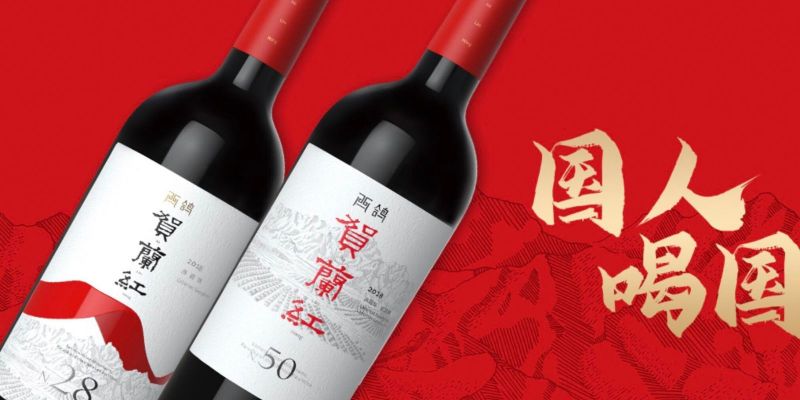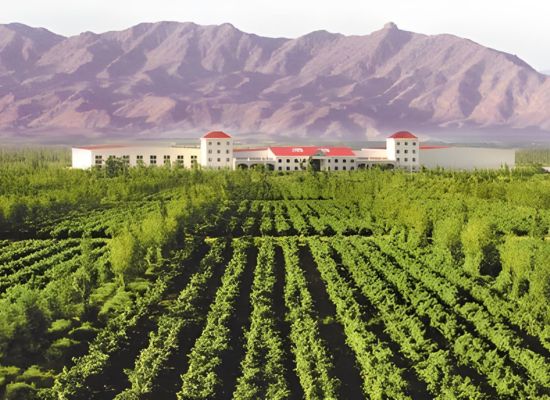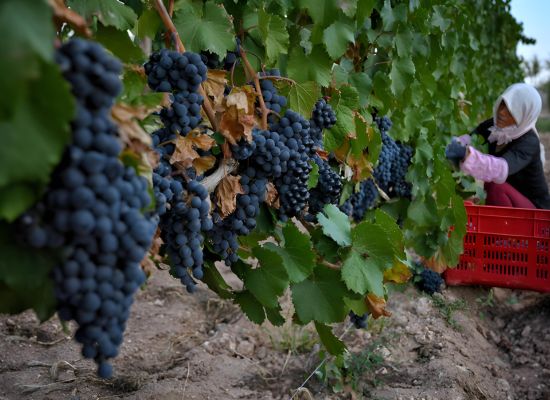Educating Sommeliers Worldwide.
By Beverage Trade Network

Editor Charlie Leary reviews recent wine industry news about China, looking at both the import and export angles alongside enhancement in all aspects of domestic production. The future looks dynamic, although EU-China trade tensions (and a possible Trump presidency) may invite uncertainty. Here is the roundup.
Over the past few years, China's wine industry has undergone significant transformations. Confronted with a dramatic decline in domestic consumption, Chinese wine producers had strategically pivoted towards international markets. Now, it was just announced that, after a period of significant declines, China's wine import market appears to be reviving, which would be particularly good for Australia, but not only. Chinese customs authorities released data showing that the first quarter of 2024 witnessed a 3.6% increase in wine imports.
Thus, China, once known primarily as a consumer of imported wines, also begins to establish itself as a competitive exporter just as its imports rebound. Based on recent press reports, we delve into the current trends shaping China’s wine industry and its continuing and growing importance on the international stage.
The past decade has seen a sharp decrease in wine consumption in China. According to the OIV's State of the World: Vine and Wine sector 2022 report, Chinese wine consumption plummeted by 16% to 8.8 million hectoliters within a year. The value of imported wines also declined, falling by 12.5% in 2022 to RMB 9.6 billion (US$1.4 billion). This marked the fourth consecutive annual decrease since 2019. Contributing factors include changing consumer preferences, economic fluctuations, and the lasting impact of stringent COVID-19 policies.
However, the lifting of China’s Zero COVID policy in January 2023 allowed for the resumption of international travel and trade shows, sparking a renewed focus on global markets. November 2023 saw the return of ProWine Shanghai, signaling China's intent to re-engage with the international wine community.
Despite the previous downturn, recent reports show a resurgence in China’s wine imports. Between January and May 2023, wine imports grew by 24.9%, reaching 104.1 million liters. This growth indicates a renewed interest in foreign wines among Chinese consumers and suggests a potential recovery for the domestic wine market. The Chinese Wine Association attributes this rebound to the stabilization of the domestic economy and the easing of pandemic-related restrictions, which have boosted consumer confidence and spending.
Yet, the condition of worldwide wine is hardly stable. The resurgence in wine imports comes amid a complex trade landscape. China’s imposition of anti-dumping tariffs on Australian wines, a key supplier, had led to a significant decline in imports from Australia. That may now reverse. This shift had created opportunities for other wine-producing countries, particularly in Europe, to fill the gap. However, the recent tensions between the EU and China pose new challenges. The EU has raised concerns about China’s trade practices, leading to potential trade barriers that could impact the wine industry. Despite these challenges, Chinese wine producers and importers are navigating the landscape by diversifying their sources and focusing on building stronger relationships with other wine-exporting nations.
China's re-entry into the global wine market was marked by its participation in major European trade shows such as ProWein and the London Wine Fair. At ProWein 2023 and 2024, numerous Chinese wineries exhibited under the banner of Upward China Wine (UCW), showcasing over 100 wines from seven regions. The 2023 delegation was led by Professor Demei Li, a prominent wine educator, who emphasized the role of government support in bolstering the industry. The Ningxia Wine Bureau, for instance, actively supports local producers through initiatives such as international wine competition entries and media tours.
Trade shows and wine competitions highlight a shift towards terroir-driven styles and varietal expression that define China’s upcoming wine regions such as Ningxia. This departure from the traditional Bordeaux-blend style reflects a broader trend within the industry towards innovation and quality.

Silver Heights Winery, Ningxia, China
One of the critical strategies for enhancing the international reputation of Chinese wines is the establishment of geographical indications. In a recent press report, Beijing-based wine writer Jim Boyce noted that China is keen to protect and promote regions like Ningxia's Helan Mountain as geographical indicators. This move is expected to elevate the status of these regions globally and facilitate easier market entry for Chinese wines.
Privately owned wineries like Fei Tswei are at the forefront of this trend. Co-owner Lily Zhang showcased their wines at multiple UK trade events, emphasizing their commitment to quality and authenticity. Fei Tswei plans to export a significant portion of their production to the UK, reinforcing the importance of geographical indications in their marketing strategy.
Marselan, a lesser-known French grape variety, has emerged as a potential flagship for Chinese wine. The Marselan Selection, the world's first wine competition focused on this grape, was held in Ningxia in October 2023. Professor Demei Li, a pioneer in vinifying Marselan in China, has championed its adaptability and unique character across different regions. His efforts have included masterclasses in Germany and Shanghai to raise Marselan's profile.
Marselan's versatility as both a single varietal and a blend component makes it an attractive option for Chinese winemakers looking to differentiate their offerings in the global market. Cassidy Dart MW, a judge at the Marselan Selection, highlighted its potential to serve as a unique selling proposition for Chinese wines, contributing to their distinctive identity.

Source: Alcohol Professor
Quality assurance is another crucial factor in China's wine export strategy. Xige Estate, for example, is the first Chinese winery to achieve the BRCGS International Quality Certification. Christelle Chene, Xige's International Affairs Director, emphasized their commitment to adhering to the highest standards in production and winemaking. This focus on quality is echoed by Silver Heights, China's first Demeter-certified winery, which prides itself on using 100% estate-grown grapes.
The challenge of blending imported bulk wines with domestic production remains a concern, but premium producers are distancing themselves from such practices. Silver Heights CEO Marco Milani underscored their dedication to quality and transparency, bolstered by regular audits and adherence to Demeter standards.
Despite the downturn in domestic production and consumption, industry experts remain optimistic about the long-term prospects for Chinese wine. Janet Z. Wang told a reporter that serious players in the industry view wine production as a long-term endeavor, with a focus on building a sustainable and reputable market presence. The number of wine-producing companies in China has decreased from 244 in 2017 to 119 in 2022, reflecting a consolidation phase where only committed and well-resourced producers remain.
Renowned consultant winemaker Lenz Moser, who collaborates with Changyu Pioneer Wine, emphasized in one news report the importance of long-term brand building. Changyu Moser XV, their joint venture, aims to position its wines among the world’s finest. Their premium offering, Purple Air Comes From the East, has received acclaim from critics like Jancis Robinson MW, showcasing the potential for high-quality Chinese wines to compete on the global stage.
Several factors point to a positive future for Chinese wine. The return of foreign producers with the expertise to navigate the complex Chinese market, the growing acceptance of white wines, and the expansion of wine-centric restaurants in major cities all signal potential growth areas. As the luxury market in China continues to expand, there is hope that wine can position itself as a desirable and prestigious product.
Moreover, China's anticipated full membership in the OIV (International Organisation of Vine and Wine) will further integrate the country into the global wine community. Regions like Ningxia and Yantai already hold OIV observer status, and hosting international events under the OIV’s patronage demonstrates China's commitment to advancing its wine industry.
China’s wine industry is also embracing technology and sustainability, aligning with global trends. The application of advanced viticulture techniques, such as precision agriculture and AI-driven vineyard management, is enhancing both yield and quality. For instance, the Ningxia region has seen significant investments in these technologies, resulting in improved grape quality and more efficient production processes.
Sustainability initiatives are becoming a core focus for Chinese wineries. The adoption of organic and biodynamic farming practices is increasing, with more wineries seeking certifications that emphasize environmental stewardship. This shift not only caters to the growing global demand for sustainably produced wines but also positions Chinese wines favorably in markets where consumers prioritize environmental responsibility.
The trends shaping China's wine industry reflect a dynamic and evolving landscape. While domestic challenges persist, the strategic pivot towards international markets, emphasis on quality and geographical indications, and the exploration of unique grape varieties like Marselan are setting the stage for a new chapter in Chinese wine. As producers and industry stakeholders continue to adapt and innovate, the global wine community will undoubtedly witness the emergence of China as a significant player in the world of wine as both an importer and an exporter.
This journey, including the increase in 2024 imports, illustrates the industry's resilience and potential. As exports, with a focus on quality, innovation, and sustainability, Chinese wines still show great potential to captivate global palates and redefine perceptions. The coming years will be crucial as China solidifies its place on the world wine map, offering a unique blend of tradition, modernity, and excellence.
Header Image Xige Estate wines; source: The Buyer